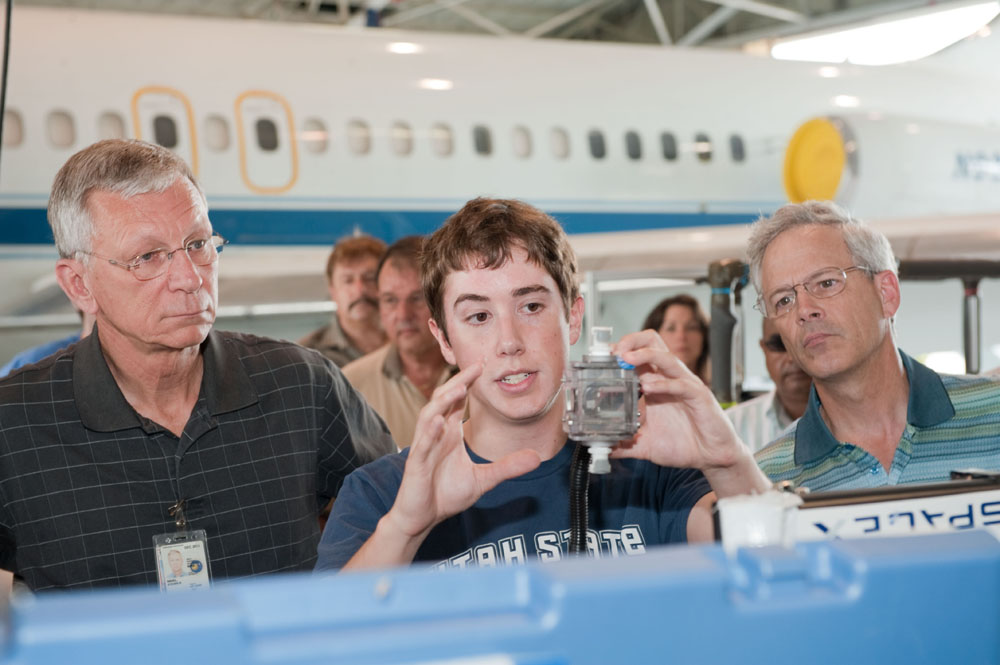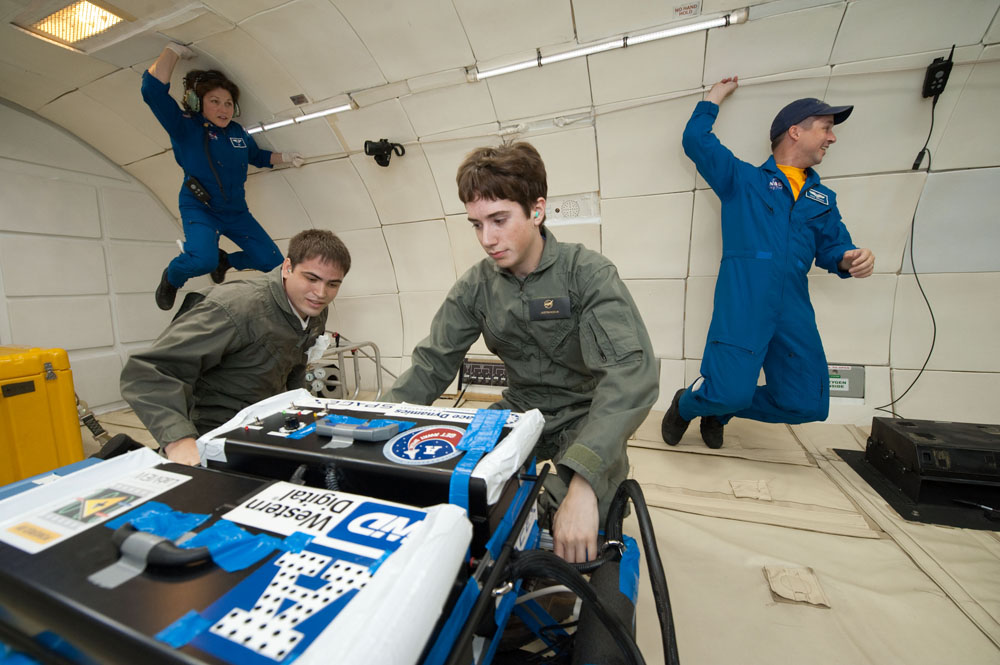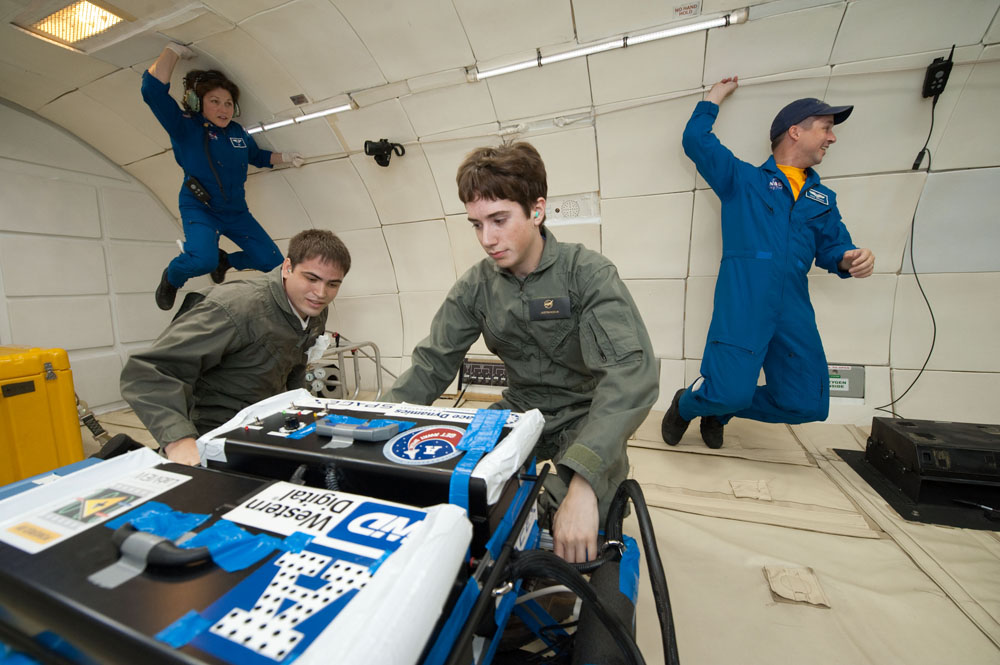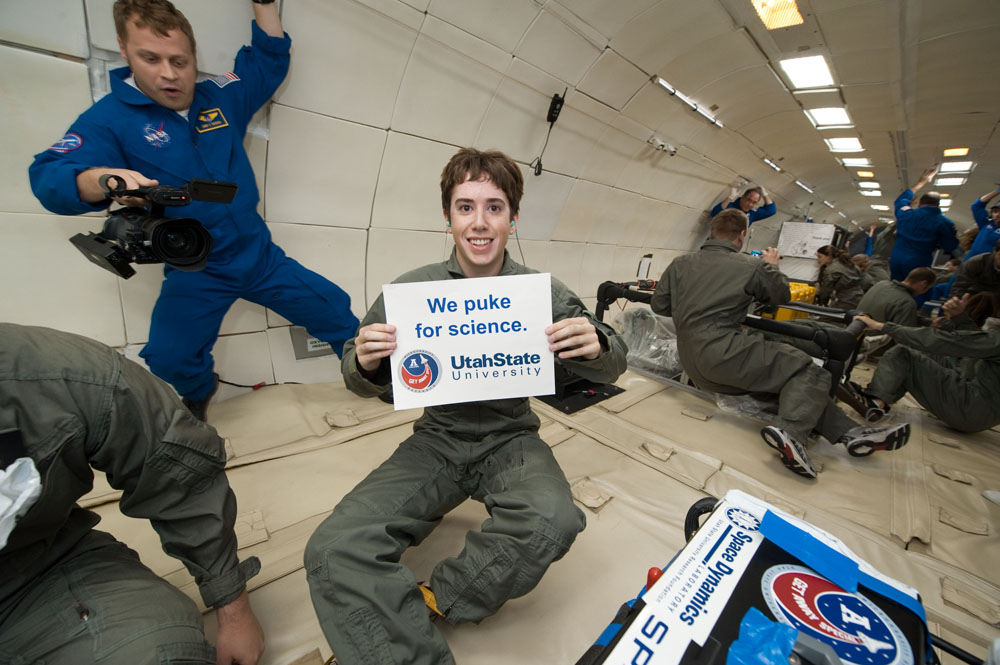Successful Boiling Experiment Aboard ‘Vomit Comet’
Utah State University’s Get Away Special “GAS” student team is celebrating the success of a nucleate boiling experiment conducted in microgravity aboard a specially modified, NASA-contracted 727, nicknamed the ‘Vomit Comet.’ The researchers’ findings contribute to thermal management knowledge that could benefit the development of space vehicles for long-duration travel.
The nine-student group was among 14 university teams that ventured to Houston’s Johnson Space Center June 16-27 after being awarded a coveted spot with NASA’s Reduced Gravity Student Flight Opportunities Program, also known as “Microgravity University.”
USU’s experiment, called “Follow-up Nucleate Boiling On-flight Experiment” or FUNBOE, builds on a previous USU GAS experiment flown aboard Space Shuttle Endeavour in 2001. Developed by USU’s then-GAS team and students from Utah’s Box Elder High School, the original experiment explored the boiling dynamics of water in microgravity.
“We analyzed data from the initial experiment and determined that more research is needed,” said undergraduate Justin Koeln, a 2010 Goldwater Scholar and FUNBOE leader. “Nucleate boiling would be ideal for thermal management systems but its dynamics in microgravity are not well understood. If we can prove that boiling water in space is practical and safe, we’re on our way to developing more efficient energy systems for long-duration space travel.”
Koeln and his teammates agree that providing robust, efficient and reliable thermal management for space exploration vehicles and instruments is essential for ambitious plans to travel to Mars and beyond.
“Our video from the on-flight experiment shows that the bubbles dispersed and didn’t stay on the wire getting hotter and hotter,” he said. “That’s significant. It indicates how water boils without buoyancy which could be revolutionary to manned space programs, satellites and deep space probes.”
The USU students will further analyze the experiment’s data, draft a report for NASA and prepare varied research papers and posters from their experience. In addition, the team plans to submit a proposal for a revised experiment for next year’s Microgravity University. The team will also continue its busy schedule of outreach presentations to K-12 students.
“We learned a lot from this experience and we’re excited to share it with the scientific community,” Koeln said. “We got great data that no one else has ever gotten before.”

Undergraduate researcher Justin Koeln, center, is questioned about USU’s experiment by NASA scientists and engineers during a test readiness review session at NASA’s Microgravity University in preparation for the experiment’s flight on NASA’s Vomit Comet./NASA photo

USU students Frank McCown, left, and Justin Koeln conduct a nucleate boiling experiment in zero gravity aboard a specially modified NASA jet.

USU students Frank McCown, left, and Justin Koeln conduct a nucleate boiling experiment in zero gravity aboard a specially modified NASA jet.

